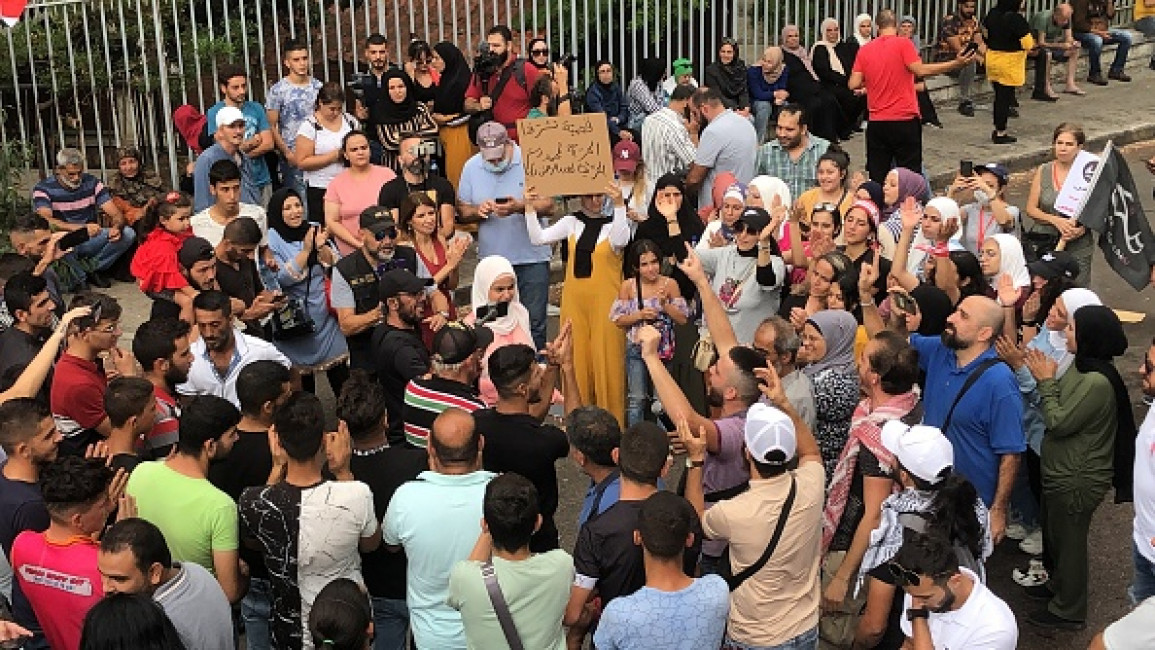Lebanon: Protesters in Beirut demand release of bank heist detainees
Protesters scuffled with Lebanese security forces Monday outside the Justice Ministry in Beirut, demanding the release of two people arrested last week during a bank heist.
The clash came as a delegation from the International Monetary Fund held meetings in Beirut with officials over the country’s economic meltdown and the limited steps taken by the government to pull Lebanon out of the worst economic crisis in its modern history. The crisis is rooted in decades of corruption and mismanagement.
The Lebanese government has implemented few of the IMF's demands from a staff level agreement reached with the IMF in April. It lists five "key pillars" that should be implemented, including restructuring the financial sector, implementing fiscal reforms, the proposed restructuring of external public debt, anti-corruption and anti-money laundering efforts.
The agreement also demanded that the country’s 14 largest banks be held up as a standard for work on restructuring the sector since they control about 80 percent of the market. The smaller banks that have problems should be taken over by bigger lenders.
Anger with local lenders who have been imposing informal capital controls including limits on ATM withdrawals for nearly three years has increased in recent weeks, with some depositors storming bank branches and taking their trapped savings by force.
Monday’s protest outside the Justice Ministry demanded the release of Abdul-Rahman Zakariya and Mohammed Rustom, who have been held since Wednesday after they broke into a bank branch and helped a depositor take her trapped savings to pay for her sister's cancer treatment.
They joined Sali Hafez, who used a toy pistol to demand $13,000 from her trapped savings account. Hafez, who has been in hiding, has said she repeatedly visited the bank to ask for her money and was told she could only receive $200 a month in Lebanese pounds.
On Friday depositors, including one armed with a hunting rifle, broke into at least five banks to demand their trapped savings, the largest number of such incidents in one day. The banks, citing security concerns, closed all branches for three days starting Monday.
At one point on Monday, dozens of protesters tried to storm the Justice Ministry before stopping after they removed a metal gate. There are concerns that if the two men are not released, protests could intensify.
In other parts of Beirut, protesters briefly closed several major roads in protest against deteriorating living conditions including almost nonexistent state electricity, a crash in the Lebanese pounds and rising poverty that has reached three quarters of the population since the economic crisis began in October 2019.
The Lebanese pound hit new lows, reaching 38,600 pounds to the US dollar on Monday.


![President Pezeshkian has denounced Israel's attacks on Lebanon [Getty]](/sites/default/files/styles/image_684x385/public/2173482924.jpeg?h=a5f2f23a&itok=q3evVtko)



 Follow the Middle East's top stories in English at The New Arab on Google News
Follow the Middle East's top stories in English at The New Arab on Google News


